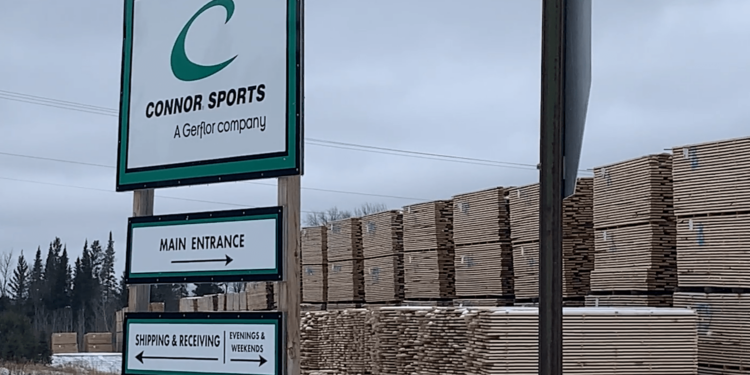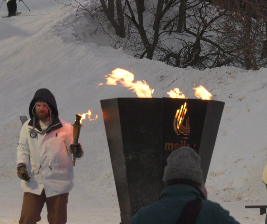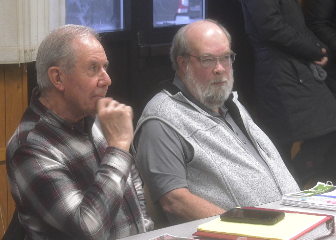AMASA, Mich. (WZMQ) – A quaint town with a population of fewer than 300 residents finds itself at the heart of March Madness, as Connor Sports, with its 125 employees, hustles behind-the-scenes to produce the official basketball courts of the NCAA Tournaments, making this season’s hoop dreams a reality.
Jason Gasperich, the Technical Director for Connor Sports, outlined the company’s long history of building basketball courts, dating back all the way to 1872. Gasperich remarked how March Madness is an exciting time for the small-town company.
“We’ve got 125 employees here, and every one of those employees contributes in some way, shape, or form, to the production of the floors that we’re shipping out to our customers. So to be able to build something, and then to watch a game played on TV, and know that’s your handiwork: it’s a really exciting time for all of our employees,” he expressed, adding, “I think everyone is really proud of being the home to this location, understanding some of the exciting things that we do here. It’s unique to have such a small town, and a small community in the U.P. that’s involved in the sports world in such a big way.”
With a home-grown innovation in its cutting-edge Quick Lock design, Connor Sports ships around 800 basketball courts annually, showcasing its prowess on the national stage.
The NCAA’s official court provider for nearly two decades, Connor Sports prides itself on using locally sourced lumber. Harvested last fall, the lumber for the upcoming tournaments in Detroit, Phoenix, and Cleveland underscores the company’s commitment to quality and locality.
“The floor that we’re probably the most excited about this year happens to be in Detroit. So it’s made in Michigan, that’s going to be played on in Michigan. So that’s a really exciting opportunity for us, aside from our involvement in the tournament in general,” he shared. “Anytime we have an opportunity to ship a product within our own home state, it’s extra special for everyone that’s there. We’re all proud Michiganders, and we’re really excited to be able to work and ship products within our state.”
Through a meticulous 6-month process of drying, curing, planing, and defect removal, the lumber is transformed into panels, molded with tongue and groove, graded, bundled, palletized, and finally shipped to a trusted partner for finishing and graphics.
The men’s Final Four court, featuring 381 panels weighing nearly 60,000 pounds, and the women’s court, with 262 panels weighing about 42,000 pounds, are not just arenas for competition, but also relics of triumph. Winning teams will have the first right to purchase the court they’ve championed on, with some opting to display the center court logo in their locker rooms, or selling pieces as memorabilia to their alumni.
“So we get asked frequently what happens to the floors after the tournament is over, especially related to the men’s tournament floor, which will be played in Phoenix this year. The team that won, the championship team, will have the first right of refusal to buy that floor. So what they do with that could vary, but we’ve had examples in the past [where] teams have purchased the floor from us, and they’ve taken the center court logo, and they’ve hung it up in their locker room, and somewhere in their home facility. Sometimes they’ll cut that floor up in small pieces, and sell it as memorabilia to their alumni. There are other instances where the teams purchased the floor, and they play on it… so there’s a real host of outlets for that floor after the tournament games are over,” explained Gasperich.
As the excitement builds, the men’s Midwest Regional court, bound for Detroit, is expected to arrive by next week on March 25th, further solidifying Amasa’s place in the annals of March Madness history. For more information about Connor Sports, visit:










